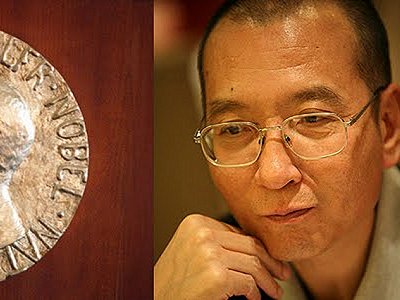
HUSHING INCONVENIENT OPINION
Across the world, societies are trading basic freedoms for the right to make money. What is this doing to them and what does it mean for the Church?
The presentation of the Nobel Peace Prize to an empty chair in December 2010 in Oslo was a moving gesture of support for the man who was not allowed to receive it: Liu Xiaobo. Liu is serving an eleven year prison sentence for co-authoring the Charter 08 appeal for democratic reform in China. China’s threats to other nations of the consequences of attending this event led to eighteen not turning up. On one level this represents China’s growing influence in world affairs. Other nations can no longer afford to ignore it if they wish to keep a stake in global economic trade. On another level it highlights a new phenomenon in politics: the trading of freedom for money.
Across the world, several governments are making unspoken compacts with their citizens. The powers that be will allow people to make money freely as long as they do not voice opposition to those who grant them that freedom. China is the most obvious example of this, and Russia is not far behind, but it is also true of a swathe of less muscular states like Singapore and the United Arab Emirates. It is also not confined to the East. Italy under Berlusconi shows similar signs and the erosion of the space for people to speak their minds publicly is becoming slowly more noticeable across western democracies.
This trend may quicken as the balance of power moves from west to east. The banking failures of the last decade happened in the west, and many countries, sensing a shift in power, are becoming more enchanted with the so-called Beijing consensus of free markets but censored public forums than the so-called Washington consensus of free markets and personal freedoms. Journalists like Will Hutton make a good case for saying that long term economic development can only be sustained by what he terms the ‘enlightenment architecture’ of, among other values, the freedom of the press, public assembly and the rule of law, but the immediate future looks very different from some parts of the world. And this shift has happened within a decade.
The intended outcome of the trading of freedom for money is that truth is never told to power. While ordinary people are free to make money, the political elites which afford them this power grow ever more corrupt as they exploit the connections of office. In such contexts, the Church is faced with dilemmas. In some places they have virtually no freedom at all. In other places there is freedom to worship and win converts to the faith, but there are subtle limitations on what can be achieved. People are free to gather to worship but they are not free to criticise their governments. The temptation here is one of self-limitation. In order to sustain their freedom to worship, churches may be reluctant to engage in the public arena prophetically for fear they will lose their most basic freedom of safe assembly.
An informed reading of scripture shows a preference among prophets like Amos and John the Baptist for uncompromising witness. It also exposes the craven failure of some to hold power accountable. What it does not do, by and large, is to tell us the individual stories of those who sacrificed their public calling in order to sustain their private faith. By definition, such people do not make a stir publicly and do not get noticed by historians. Yet it is going to be a challenge for the churches to avoid such an outcome in some parts of the world in our lifetime.
At the same time, I have some sympathy for those who are tired of hearing western voices preach the virtues of their system when it comes not just with a seemingly endless cycle of boom and bust but with extraordinary personal and relational costs. We seem to treat rates of family breakdown, abuse, crime, addiction, mental illness and inequality as a small incidental cost on an inside page of our national financial accounts, rather than the headline figure it truly represents. More humility and self-awareness is called for. A long time ago, those of us who live in the west made our own compact with the system: as long as we get wealthier, we will voice only hushed opinion on the damage that the preference for a material over a relational society does to its citizens in the long run.
POPULAR ARTICLES

Obama's Covert Wars
The use of drones is going to change warfare out of all recognition in the next decades.

Through A Glass Starkly
Images of traumatic incidents caught on mobile phone can be put to remarkable effect.

What Are British Values?
Is there a British identity and if so, what has shaped the values and institutions that form it?


